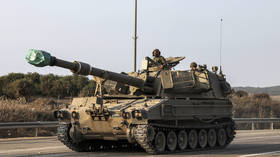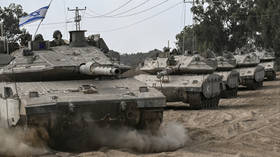Israel-Palestine conflict endangering oil market – experts

The latest escalation of the decades-long Israel-Palestine conflict is not projected to pose immediate risks for the global oil market, crude traders told Bloomberg on Sunday as they prepare for the market to open.
On Saturday, Palestinian armed group Hamas launched thousands of missiles at Israel and deployed its militants to infiltrate Jewish settlements near the country’s border with Gaza. In response, Israeli authorities launched the ‘Iron Swords’ operation.
According to the latest updates, more than 600 Israelis have been killed since the launch of the surprise attack by Hamas.
Meanwhile, Israel has destroyed or damaged more than 400 sites in Gaza. Over 300 Palestinians have been killed, many of whom were civilians. Almost 2,000 have been wounded.
The “oil-disruption scenario would be if conflict spread to Iran,” Bob McNally, president of Rapidan Energy Group and a former White House official, told the agency, adding that such sequence of events looks unlikely.
Iran, a major oil producer and also an OPEC member, is seen as one of the key backers of the Hamas group that launched this weekend’s offensive on Israel.
“It is unlikely to impact oil supply in the short term,” hedge fund trader Pierre Andurand of Andurand Capital Management said, as cited by Bloomberg. “But it could eventually have an impact on supply and prices.”
Iran, for its part, has publicly expressed support for the Palestinian attack.
According to McNally, “crude prices would immediately spike on the perceived risk of a disruption,” if Tel Aviv responds by striking any infrastructure in the Islamic Republic.
Shipments of Iranian crude have rebounded to a five-year high, becoming increasingly important to the market. The latest hostilities could prompt Washington to deal more aggressively with Iranian cargo flows, which are moved –with the tacit blessing of the US– mostly to China.
“I think this development will mean stronger enforcement of Iranian sanctions, so less Iranian oil going forward,” Andurand told the agency, adding that the domino effect in the region is impossible to predict.
The Islamic Republic could respond by blocking the Strait of Hormuz, a waterway in the north of the Arabian Sea that sees nearly 17 million barrels of crude passing every day.
For more stories on economy & finance visit RT's business section













